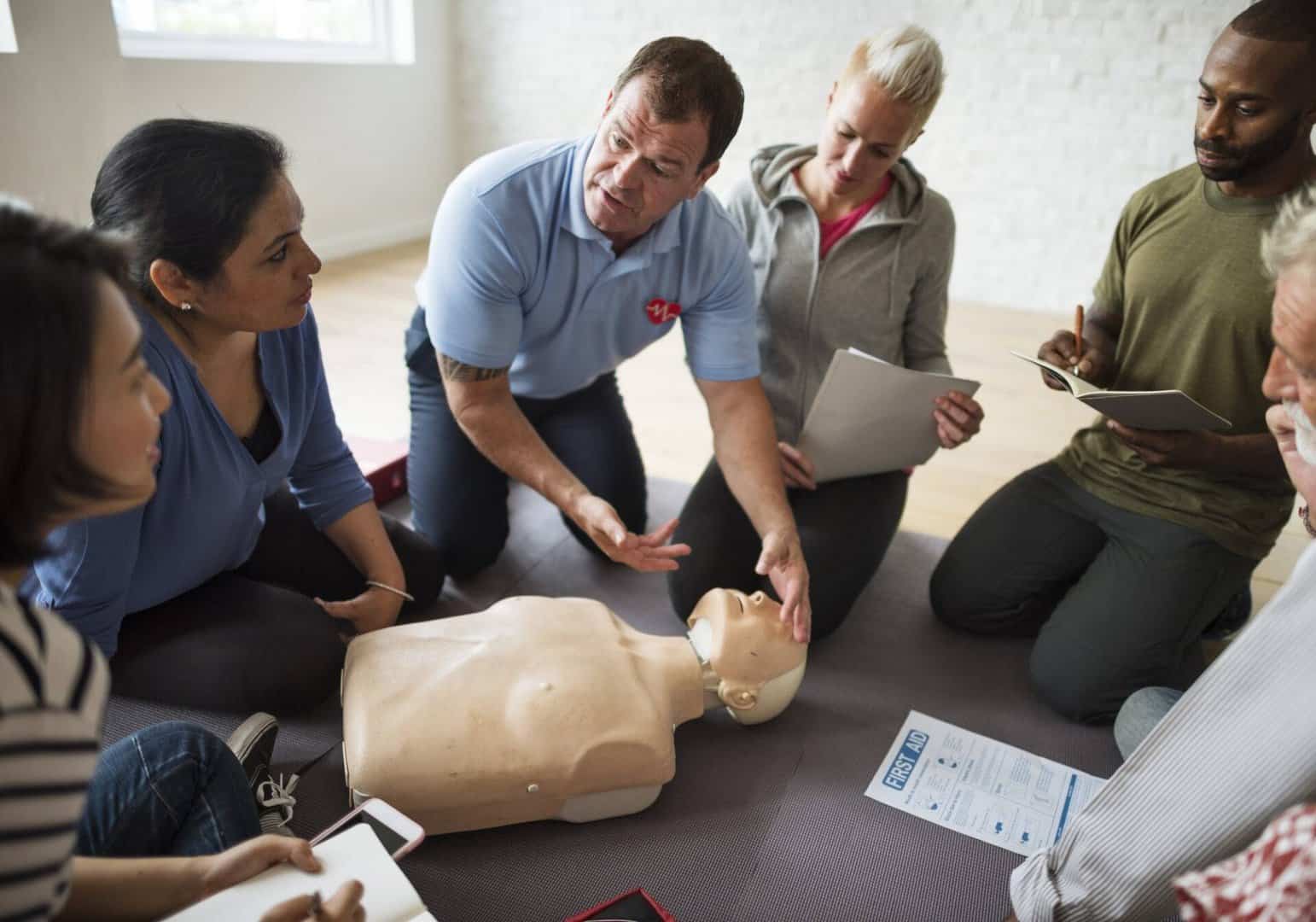
In today’s fast-paced world, unexpected accidents and emergencies can occur at any given point in time. That’s why it’s vital for every corporate professional to possess first aid skills. Whether it’s a minor injury or a serious medical incident, having the knowledge and confidence to respond appropriately can be life-saving.
This post will discuss some of the first aid skills that all corporate professionals should have to ensure the safety and well-being of both their colleagues and themselves. If you wish to give corporate first aid training, you can rely on reputed companies like Hero Headquarters. They provide comprehensive programs to equip professionals with the essential skills needed to respond effectively in emergency situations.
1. Cardiopulmonary Resuscitation (CPR)
Cardiopulmonary resuscitation, commonly referred to as CPR, is a skill that everyone should acquire, including corporate professionals. CPR involves applying chest compressions and rescue breaths to someone who has experienced a cardiac arrest. Knowing how to perform CPR can make a difference in saving lives during emergency situations before medical professionals arrive.
2. First Aid for Choking
Choking is another emergency scenario where immediate action is absolutely vital. Being knowledgeable about first aid techniques for choking can enable you to assist your colleagues if they ever find themselves unable to breathe due to an obstructed airway. Understanding techniques such as the Heimlich maneuver or abdominal thrusts could play an important role in saving someone’s life.
3. Dressing Wounds
In an office setting, it’s quite common to experience injuries, like cuts or scrapes, while going about our daily activities. It is important to know how to treat these wounds by cleaning them using a solution, applying sterile dressings and securing them with bandages. This helps prevent infections and promotes healing.
4. Dealing with Allergic Reactions
When it comes to allergies, they can unexpectedly strike in situations such as insect bites or exposure to certain foods or medications. It is essential for professionals in a work environment to be aware of the signs and symptoms of reactions and know how to respond effectively. Administering antihistamines or seeking assistance can make a significant difference between managing an allergy episode well and dealing with a severe reaction that could be life-threatening.
5. Recognition and First Aid for Heatstroke
Advertisment
As office spaces increasingly prioritise shared environments, the risk of heatstroke during hot summer months becomes more inevitable. Recognising the signs of heat-related illnesses and taking first aid measures is crucial. This includes moving the affected person to an open area, ensuring they are hydrated and applying compresses to prevent any further complications.
6. Understanding Automated External Defibrillators (AEDs)
While cardiac arrest can occur anywhere, it is crucial for corporate environments to be prepared for situations, considering the delays in receiving professional medical assistance. Therefore, it is important for corporate professionals to know where automated external defibrillators(AEDs) are located in their offices and become familiar with how to use them. Administering defibrillation significantly improves survival rates during cardiac arrest incidents.
7. Basics of Administering Medication
In certain circumstances, corporate professionals may need to provide first aid that involves giving medication, such as epinephrine pens for severe allergic reactions or aspirin for suspected heart attacks. Having an understanding of the administration procedures and dosage guidelines ensures safe and effective usage during emergencies.
8. Mental Health First Aid
Mental health issues are quite prevalent in the world and can greatly impact individuals’ well-being. Recognising signs of distress and offering support is just as important as providing physical first aid. Corporate professionals should acquaint themselves with the principles of mental health first aid, including how to approach someone who may be going through a mental health crisis or struggling with anxiety/depression. Showing empathy, lending a listening ear and guiding individuals towards help or resources can have an effect on their emotional well-being.
Conclusion
By acquiring proficiency in these first aid skills, professionals in the corporate world can ensure the safety and well-being of their colleagues during emergencies. Important abilities such as performing CPR, understanding how to respond to choking incidents, caring for wounds, managing reactions, recognising symptoms of heatstroke, knowing how to effectively use AEDs in the office setting, administering basic medications, following first aid protocols and being aware of mental health issues can not only empower individuals but also contribute to creating a supportive community within the workplace. Prioritising these skills demonstrates a dedication to establishing a secure environment where everyone feels safeguarded and nurtured—beyond mere physical safety concerns.
